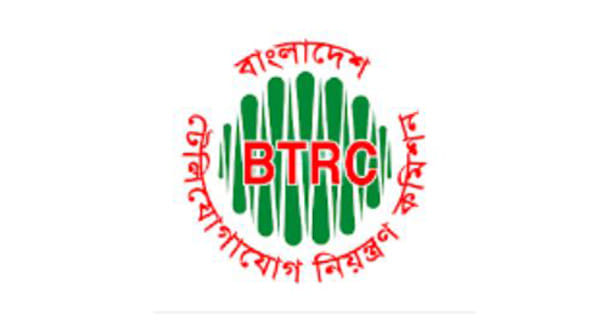New telecom policy trims licensing categories to four

The Bangladesh Telecommunication Regulatory Commission (BTRC) has started preparing new guidelines under the Telecommunications Network and Licensing Policy, which came into effect last week with the gazette publication.
The new policy marks the formal end of the International Long Distance Telecommunication Service (ILDTS) Policy 2010.
That framework had been introduced to regulate international gateways and curb illegal internet-based voice over internet protocol (VoIP) calls, but became increasingly outdated as technology advanced.
"Under the new licences, there will be four categories, while there was more than a dozen previously. We have already formed committees to formulate guidelines accordingly," said Maj Gen (retd) Md Emdad ul Bari, chairman of the BTRC.
He said the regulator will discuss with operators and other stakeholders before drafting the guidelines, followed by a public consultation.
The BTRC chairman said the final one will then be sent to the posts and telecom division for approval.
SIMPLER LICENSING
The new policy replaces a fragmented structure with a single set of rules that apply regardless of the technology used. It looks to attract foreign investment and speed up the country's shift to digital services.
According to the new policy document, the previous multi-tiered licensing regime has led to overlapping regulatory mandates, inefficiencies in governance, and a distorted competitive environment.
Over the years, separate licences were issued for international gateways, interconnection exchanges and internet hubs. It created overlapping functions, higher compliance costs and slower innovation.
The new policy abolishes these layers. Where there were once more than a dozen licences, the new framework creates four main types.
Those are access networks such as mobile network and broadband operators, national infrastructure that includes telecom towers and fibre optic networks, international connectivity that includes submarine cables, and non-terrestrial networks. A fifth one, called telecom-enabled services, will need only registration, not a full licence.
In practical terms, mobile operators, internet service providers, submarine cable operators, tower firms and satellite service providers will move into this unified system.
Old licence types such as international internet gateway (IIG), interconnection exchange (ICX), national internet exchange (NIX) and international gateway (IGW) will be phased out as they expire, with most due to end by 2027.
The new policy says it will adopt "a technology-neutral model that ensures necessary licence obligation and enhances quality of service and quality of experience for consumers." Rather than specifying which technologies must be used, it will allow operators to choose and innovate.
FOREIGN OWNERSHIP LIMITS
According to the new telecom policy, mobile operators may have up to 85 percent foreign ownership, but at least 15 percent must be held locally through joint ventures, stock market listings or other arrangements.
Companies will have three years to comply.
Infrastructure firms will face a 65 percent cap on foreign ownership, while providers of international connectivity will be limited to 49 percent.
"This safeguard is intended to promote domestic investment, align with national development objectives, and ensure long-term strategic interests," the policy says.
It mentions that the goal is to encourage global capital while keeping critical networks under some domestic control.
SPACE FOR NEW TECHNOLOGIES
The policy places a strong focus on emerging services, from the internet of things and private 5G and 6G networks to blockchain, mission-critical communications and quantum computing facilities.
"BTRC shall adopt a proportionate and flexible regulatory approach for emerging and innovative services," the policy says.
For the first time, telecom laws explicitly recognise mobile virtual network operators (MVNOs). These are firms that provide mobile services without owning the physical network, a move that could open the market to new entrants.
COVERAGE, QUALITY REQUIREMENTS
The new policy also set strict targets for coverage and service standards.
Mobile operators must connect half of their towers to fibre-optic cables within 18 months and 80 percent within three years.
The national fibre backbone must extend underground to every union parishad, the smallest rural administrative unit, and meet telecom-grade standards.
In disaster-prone areas, at least a quarter of towers must have diesel generators for backup power.
To monitor performance, the BTRC will launch a "National Quality of Service Dashboard" with anonymised, near real-time data on accessibility, coverage, throughput and reliability.
LIMITING MARKET DOMINANCE
The new policy also addresses concerns over market power. For years, debate has centred on whether a few dominant players have limited competition in mobile and internet services.
The BTRC will now have power to identify companies with significant market power (SMP) and impose remedies. These could include controls on tariffs, mandatory infrastructure sharing, bans on cross-subsidies and stricter financial disclosure.
"SMP regulation shall apply where any licensee -- either individually or jointly -- has the ability to distort market dynamics, restrict effective competition, or abuse a dominant position," the policy says.
Besides, the new policy requires operators to adopt renewable energy where possible, manage electronic waste responsibly and cut their carbon emissions.
It also sets limits on state surveillance, saying that lawful interception can only take place "upon valid legal authorization and under judicial or quasi-judicial mandate".



 For all latest news, follow The Daily Star's Google News channel.
For all latest news, follow The Daily Star's Google News channel.
Comments